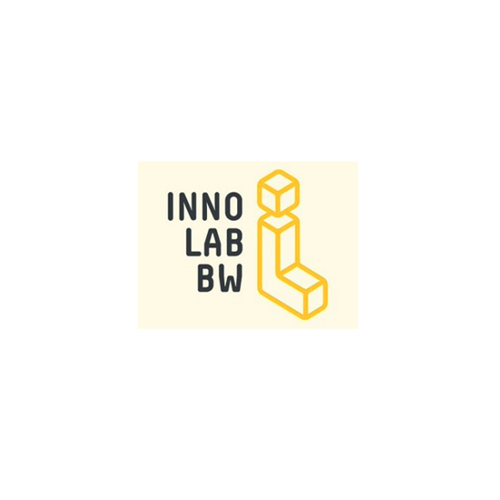
The Global Scale-Up Programme 3.0 - COP28
Welcome to the award-winning GovTech Global Alliance COP28 Scale-Up Programme!
If you are a social impact business in the climatetech sector looking to build networks with governments internationally, then apply to the GovTech Global Alliance Scale-Up Programme (GSUP).
Our mission is to source, surface and scale climatetech solutions for global public service application. The third iteration of this award-winning helps scale-ups connect with policy makers, procurers and investors from all over the world. The purpose is to provide a gateway to public sector and ecosystem decision makers that are otherwise challenging to access.
This year, the Global Scale-up Programme 3 (GSUP) brings together 12 country programme teams looking to solve challenges on Biodiversity Management, Agrifood and Water systems, and decarbonisation in value chains and buildings. These COP28-related challenges are global issues and resonate in different ways in different parts of the world. Like last year, they are broad challenges thus allowing for a spectrum of solutions that tackle different elements of the challenges.
The virtual programme runs from 2nd October to 17th November where companies will be given global perspectives on how to sell to the public sector, landing pads for international markets, insights into what green investors are looking for, and how diversity and inclusion is essential for business and product development.
Thereafter, we will meet in Dubai for COP28, which is held from 30 November to 12 December. Our exact dates will be determined closer to the time.
With selected programme teams from Australia, Belgium, Brazil, Denmark, Egypt, Greece, Lithuania, Nigeria, New Zealand, Scotland and Spain, this is your opportunity to join a global cohort of scaling businesses and get to know the key players behind the govtech / climatetech ecosystems within our global alliance.
Deadline extended to 21 September
Participation in the Global Scale-up Programme will
help you understand how to sell to the public sector in different countries around the world
provide you with a global platform through access to COP28
scale your business by incorporating ethical practices in diversity, ethics and social impact.
We will help you on your journey through six themed sessions. See the full programme timetable below.
GovTech - what it is and how GovTech companies sell to the public sector - helping companies understand how to sell to gov
Internationalisation - a whip round of the inward investment agencies to engage with from our regions
Investment - what investors from around the world are looking for in their green investments
Business growth - how supply chains are becoming more socially impactful
Product development - how including diversity and inclusion into your product development makes better products
Policy maker demo week - connect with public sector policy makers and procurers on the challenge themes
You can read more about the programme on the ‘How GSUP works’ page.
GSUP 3.0 Challenges
-

C1 - Biodiversity conservation
How can we use data and technology to manage and conserve natural carbon sinks and biodiversity hotspots?
-

C2 - Agrifood and water
How can we use data and technology to help public service delivery in the supply of healthy food and clean water, as well as promote a net-zero, nature-positive, and resilient agrifood and water systems?
-

C3 - Decarbonisation of value chains and buildings
How can we use data and technology to promote a rapid decarbonisation across industrial value chains and commercial buildings?
Challenge 1: Biodiversity conservation
How can we use data and technology to manage and conserve natural carbon sinks and biodiversity hotspots?
Climate change is a global issue with urgent implications. To effectively combat climate change, maintaining natural carbon sinks and biodiversity hotspots is of paramount importance. However, managing and conserving these regions with traditional methods is inadequate due to their large scale and complex dynamics. The challenge lies in leveraging data and technology to understand, predict, and manage the health of these natural assets, and integrating these insights into policy and conservation action.
Natural carbon sinks - forests, oceans, and other habitats - absorb approximately 2.6 gigatons of CO2 per year, accounting for nearly a third of all carbon dioxide emissions from human activities. Biodiversity hotspots, representing only 2.3% of Earth's land surface, house about half of the world's endemic plant species and nearly 43% of bird, mammal, reptile, and amphibian species. However, these critical ecosystems are under threat due to human activities, with a 68% decrease in global wildlife populations since 1970, according to WWF's Living Planet Report 2020. In the Amazon rainforest, often referred to as the planet's lungs, approximately 17% has been lost in the last 50 years, primarily due to deforestation.
Currently, efforts to track, manage, and conserve these regions are impeded by outdated methods, underfunded projects, and lack of real-time data. Traditional ground-based surveys are resource-intensive, infrequent, and often incomplete. Satellite imagery offers a broader view but often lacks the resolution and immediacy necessary to capture real-time changes or small-scale threats. Furthermore, data from these sources is often not integrated, leading to fragmented understandings and ineffective interventions.
We are seeking innovative solutions that leverage data and technology to effectively manage and conserve our invaluable natural carbon sinks and biodiversity hotspots. These ecosystems play a crucial role in mitigating climate change and preserving biodiversity, but they face significant threats due to human activities and environmental changes. We are looking for proposals that harness the power of data analytics, remote sensing, machine learning, or other technological advancements to enhance monitoring, protection, and restoration efforts. The goal is to ensure the long-term sustainability and resilience of these critical ecosystems.
We are looking for:
Innovative solutions that combine data science, machine learning, remote sensing, and other emerging technologies to accurately map, monitor, and manage carbon sinks and biodiversity hotspots. These solutions should aim to provide real-time, high-resolution data on environmental changes, biodiversity loss, and carbon sequestration rates, allowing for timely and effective responses.
Technologies that not only collect and analyse data but also offer predictive capabilities, helping us understand potential future trends and impacts based on current actions and environmental changes.
Solutions that can work at both small and large scales, identifying individual threats (such as illegal logging) while also providing a macro view of overall ecosystem health. We also seek frameworks that facilitate the integration of this data into conservation policy and action, fostering cross-sector collaboration and ensuring that these invaluable insights are utilised effectively to conserve our planet's critical ecosystems.
We also welcome ideas on how to structure and implement the data collection, storage, sharing, and usage policies to ensure accessibility and privacy, while maintaining the integrity and value of the data for its intended purposes.
These technological solutions should aim to be sustainable and cost-effective, enabling their use by organisations and governments of all sizes, in regions around the world.
Challenge 2:
How can we use data and technology to help public service delivery in the supply of healthy food and clean water, as well as promote a net-zero, nature-positive, and resilient agrifood and water systems?
The global demand for healthy food and clean water is escalating, driven by population growth, urbanisation, and changing dietary patterns. However, current agrifood and water systems face significant challenges in terms of sustainability, resource efficiency, and environmental impact. Unsustainable agricultural practices contribute to deforestation, soil degradation, water pollution, and greenhouse gas emissions. To address these pressing issues, we need innovative solutions that leverage data and technology to ensure the supply of healthy food and clean water while promoting net-zero emissions and nature-positive approaches.
Ensuring the availability of healthy food and clean water is a critical global challenge that necessitates transformative solutions. Rapid population growth, coupled with the impacts of climate change, places immense pressure on agricultural systems and water resources. According to the United Nations, the global population is projected to reach 9.7 billion by 2050, requiring a 70% increase in food production. According to a report by the United Nations, approximately 690 million people are affected by hunger, and 3 billion people cannot afford a healthy diet. Concurrently, water scarcity affects over 2 billion people worldwide, compounded by inefficient water systems and climate change. The agrifood systems also contribute up to 29% of global greenhouse gas emissions, exacerbating climate change and threatening long-term food security. This depicts the magnitude of the issues and underscores the urgency to seek innovative solutions.
Conventional agricultural practices often rely on intensive use of fertilisers, pesticides, and water, resulting in soil degradation, biodiversity loss, and water scarcity. Additionally, the food system accounts for approximately one-third of global greenhouse gas emissions, further exacerbating climate change.
Data and technology offer immense potential to address these challenges. Advanced monitoring technologies, such as remote sensing, drones, and IoT sensors, can provide real-time data on soil moisture, crop health, and water quality. This information can enable precision agriculture, optimising resource allocation, reducing waste, and minimising environmental impact. Moreover, the advent of new biological-based technologies can have a positive impact on sustainable and increased food production.
We are seeking innovative solutions that utilise data and technology to revolutionise our food and water systems, ensuring their sustainability, healthiness, and resilience in the face of climate change and growing demands. We are looking for proposals that leverage cutting-edge technologies, such as IoT (Internet of Things), blockchain, artificial intelligence, or predictive analytics, as well as biological-based technologies, genetic resources in agriculture and food, gene editing, biomolecules, and other technologies that could to optimise agricultural practices, enhance water management, and promote sustainable supply chains. The objective is to achieve a net-zero carbon footprint while simultaneously fostering positive impacts on nature and delivering healthy food and clean water to communities around the world.
We are looking for:
Innovative solutions that leverage data and technology to revolutionise agrifood and water systems. Proposals should focus on developing scalable and replicable approaches that promote sustainable agricultural practices, efficient water management, and transparent supply chains. Solutions that foster nature-positive approaches, promote biodiversity conservation, and contribute to net-zero emissions will be highly valued.
Collaboration between researchers, technology developers, policymakers, and local communities is crucial to address this challenge effectively. By leveraging data and technology, we can achieve sustainable and resilient agrifood and water systems that ensure the supply of healthy food and clean water while mitigating climate change and preserving the planet's natural ecosystems.
Challenge 3:
How can we use data and technology to promote a rapid decarbonisation across the full energy and industrial value chains, accelerating economic and job growth?
The urgent need to address climate change mandates a swift transition towards a low-carbon economy. A holistic approach that targets decarbonisation across energy, industrial value chains, and **commercial buildings** is crucial for minimizing greenhouse gas emissions and countering the devastating effects of climate change.
This transition, while paramount, is fraught with hurdles such as technological complexities, economic considerations, and the potential for job shifts. Harnessing the potential of data and technology can be the linchpin for expediting economic growth concomitantly with achieving swift decarbonization. With the exacerbating consequences of climate change, from escalating global temperatures to extreme weather calamities and the strain on our natural resources, the urgency is clear.
In the quest to restrict global warming below 2 degrees Celsius, per the Paris Agreement, it's imperative to rapidly decarbonise not just our energy and industrial sectors but also our commercial buildings. The International Energy Agency (IEA) posits that energy generation and usage are responsible for around three-quarters of global greenhouse gas emissions. The industrial domain is culpable for about 25% of these emissions. Commercial buildings contribute significantly to global emissions due to energy consumption in heating, cooling, and daily operations. Hence, decarbonisation across all these sectors becomes a non-negotiable imperative. Opportunities abound when we look to data and technology as the catalysts for this shift. Advanced data analytics, coupled with artificial intelligence and machine learning, can enhance energy systems, pinpoint energy-saving opportunities, and seamlessly weave in renewable energy sources. Predictive modelling and real-time monitoring prove invaluable for grid management, demand response, and efficient resource utilisation.
Within the industrial domain, pioneering technologies such as carbon capture, utilisation, and storage (CCUS) can be monumental in emission reductions. In the realm of commercial buildings, technology-driven solutions can lead to smarter building designs, efficient energy systems, and the integration of renewable energy sources, thereby substantially reducing their carbon footprint. Data-driven methodologies can refine industrial procedures, amplify supply chain efficacy, and champion the ethos of a circular economy. We beckon trailblazing solutions that harness the unparalleled potential of data and technology to expedite the decarbonisation across energy, industrial value chains, and commercial buildings. Such solutions will be pivotal in stimulating economic growth and fostering job opportunities. The propositions should emphasize real-time data analytics, cutting-edge modelling strategies, intelligent systems, and other technological breakthroughs. These innovations should aim to heighten energy efficiency, incorporate renewable energy, and curtail greenhouse gas emissions across industries and commercial infrastructures.
We are looking for:
Pathbreaking solutions that capitalize on data and technology to drive rapid decarbonisation across energy, industrial processes, and commercial buildings while catalysing economic progress and job genesis. Proposals should prioritize scalable and economically feasible technologies that promote energy efficiency, renewable energy assimilation, carbon capture, and sustainable industrial and building practices.
Collaboration between industry captains, policymakers, tech innovators, research entities, and architects and building developers is paramount. With the combined might of data and technology, we can hasten our shift to a low-carbon economy, spur economic progression, and forge sustainable employment avenues. --- By incorporating the decarbonisation of commercial buildings into the challenge, we underscore the importance of this sector in the broader effort to reduce global emissions.
GSUP 3.0 Global Access Programme Schedule
-
Time (UTC +0) - 10:00AM - 12:00PM
Opportunity for everyone to meet each other
What to expect from the programme
Gives, gets and gaps
Previous alumni perspectives
COP28 update
-
Time (UTC +0) - 10:00AM - 12:00PM
What is GovTech and CivicTech and what to look for when selling to the public sector - helping companies understand how to sell to the public sector.
The GovTech and CivicTech Ecosystem around the world (North America, LAC, Europe, Africa, Oceania)
B2G business models with some success/failure stories
-
Time (UTC +0) - 10:00AM - 12:00PM
Landing pads for companies: an overview of the agencies to contact from within our our membership
We will also use this session as an opportunity to gather which countries and policy the companies want to prioritise
-
Time (UTC +0) - 10:00AM - 12:00PM
This will be a refresh on how to pitch effectively. Often our sessions require a 2 minute overview rather than 10 minutes. This session will help companies refine their pitch down to that time.
-
Time (UTC +0) - 10:00 to 13:00
Investment opportunities for GovTech and climatetech companies
Introductions to VC/CVC/venture builder funds (North America, LAC, Europe, Africa, Oceania)
Pitches by the cohort
-
Time (UTC +0) - 10:00 - 11:00
Session delivered by the Office Climate Envoy for UAE Government on the themes for COP and what they mean for the presidency
-
Time (UTC +0) - 10:00 - 12:00
How governments & corporates are increasingly incorporating social impact in their procurement pipeline
How companies can drive social change. Social impact businesses success / failure case studies
Session with WorldBank/UNDP on how practical tech solutions are to addressing the UN’s Sustainable Development Goals)
-
Time (UTC +0) - 10:00 - 12:00
Description
This session explores how diversity and inclusion in crucial in building better and more scalable products and why procurement teams are increasingly using this as a criteria for supplier selection.
-
Time (UTC +0) - 10:00 - 11:30
An interactive session with the GSUP cohort to discuss ethical governance strategies and keeping impact at the core of their business models.
-
Time (UTC +0) - 10:00 - 13:00
Using the information gathered in the internationalisation session, we will set up a match-making session between cohort and policy makers / procurers from across the regions, split by the themes. In essence, this will be a speed dating session around the world!
-
Time (UTC +0) - 10:00 - 12:00
Pre-COP28 briefings finalising the arrangements for later on in the month.
GSUP 3.0 Programmes & Partners
Meet the strategic partners and supporting teams















